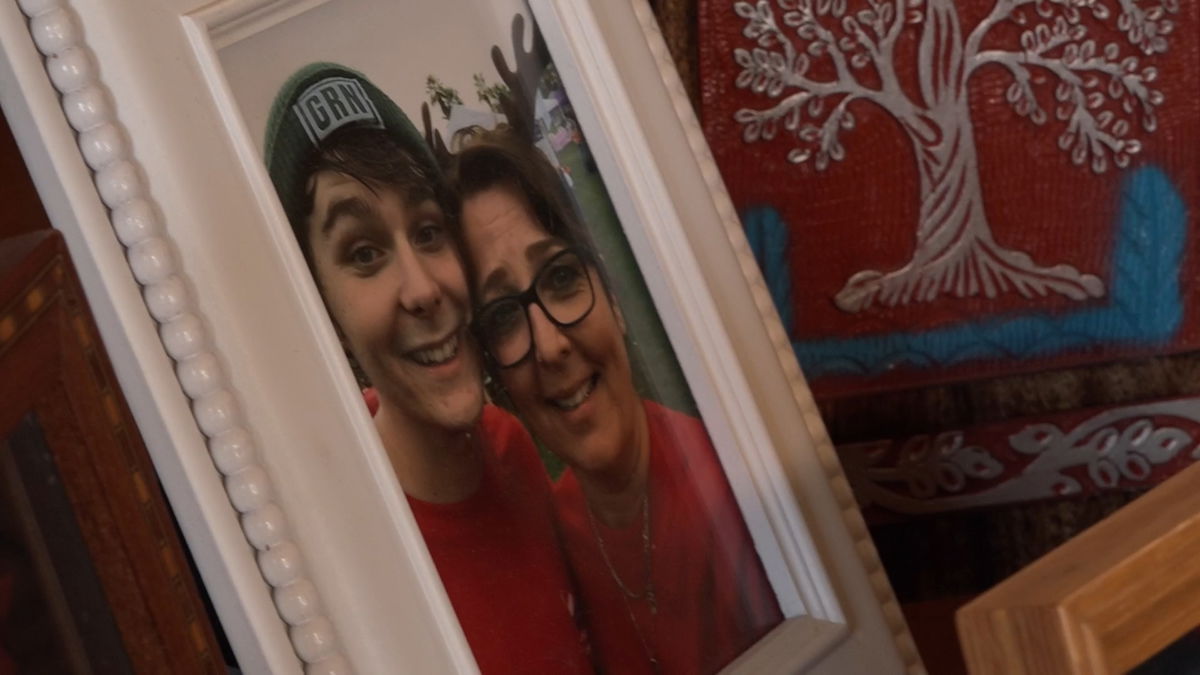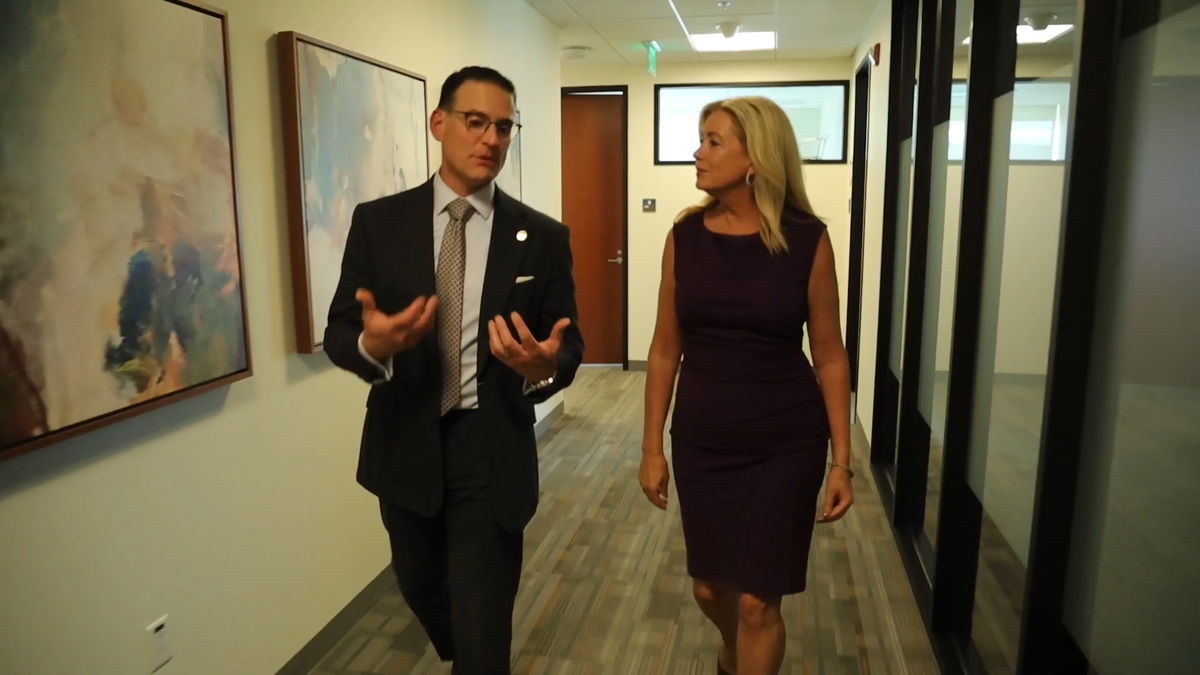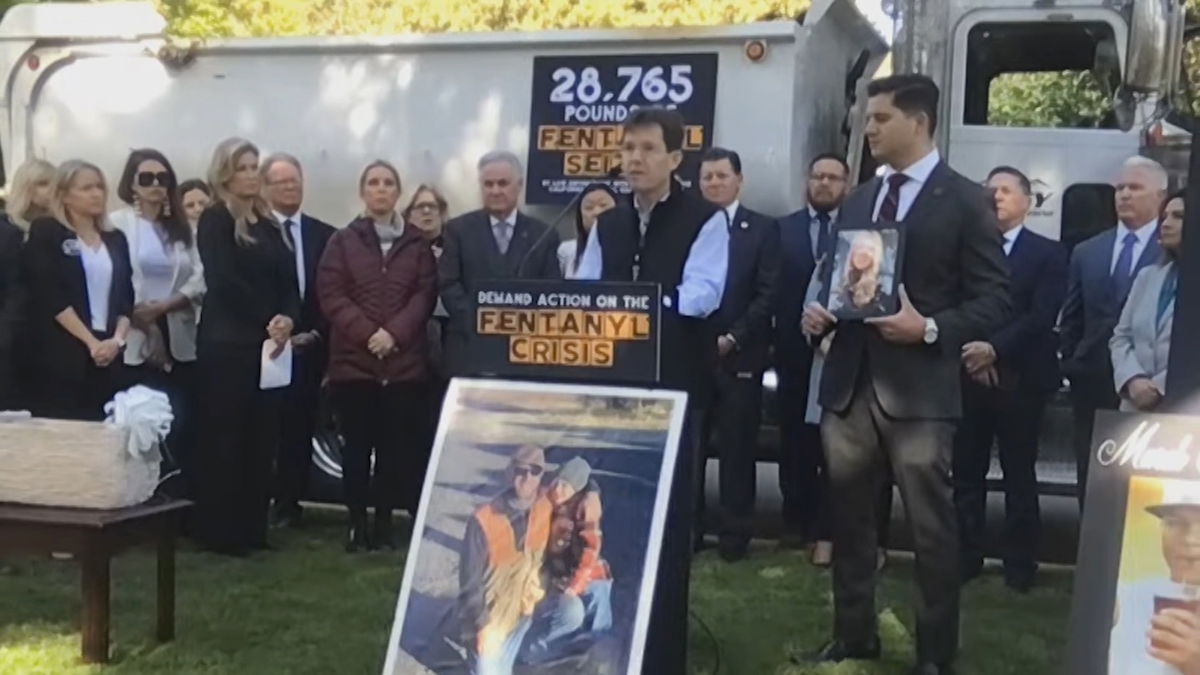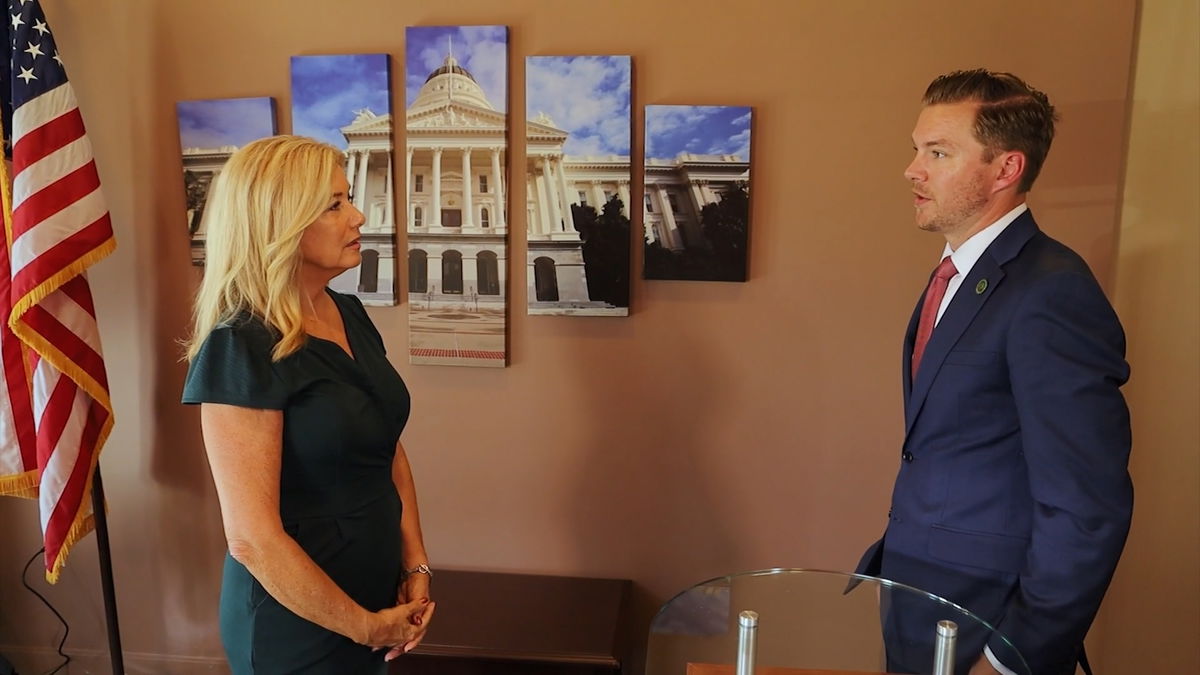Fatal Flaw: I-Team investigates efforts to combat local efforts to combat Fentanyl crisis
Riverside County District Attorney Mike Hestrin says weak California laws are partially to blame for an epidemic killing people right here in Riverside County. Reporter Karen Devine’s I-Team Investigation shows how severe the problem is and asks what it will take to make changes to this “Fatal Flaw.”
Jennifer Loza of Bermuda Dunes lost her 18-year-old son Steven to fentanyl poisoning two and half years ago. He had just graduated high school. Loza says he was left to die when he lost consciousness after taking a pill.
“He had enough Fentanyl in him to kill almost 3 people,” said Loza.
Loza was notified her son had passed from an “overdose” when police knocked on her door. Her reaction to the crushing news triggered past trauma from when her husband suddenly died years earlier from a blood clot after a routine massage.

“Losing my husband was awful, then losing my son, there are no words for it. He had plans. He made bad choices, but our kids shouldn’t die from mistakes. They should have the opportunity to learn from them. He was literally left just to die like he was not important,” said Loza.
No one has been held accountable for Steven's death. Not the dealer, who Loza says had Narcan, not the friends who were with him, and not the parent who was allegedly home at the time.
Riverside County District Attorney Mike Hestrin says that’s an all too familiar story that needs to change, starting with harsher laws for dealers.
“Laws in California are not conducive to helping law enforcement deal with this problem,” said Hestrin.

The problem: Fentanyl
The drug can be 100 times more potent than morphine. It’s mixed into street narcotics and the pills coming from Mexico are made to look like legal prescription drugs.
“It’s everywhere, it’s in every drug and it’s just horrible what’s happening,” said Hestrin.
People can take it without knowing what or how much they are consuming.
Hestrin says, “That’s what’s causing the deaths because 100% of the pills that are made by the cartels contain Fentanyl, 100 percent.”
Devine asked the District Attorney, “How susceptible is the Valley to this problem?”
According to Hestrin, “Riverside County is a drug corridor for the cartels. They bring their product here in the Coachella Valley, specifically what we find out here are stash houses.
The house is stacked from floor to ceiling with whatever kind of drug and it’s basically a fulfillment center.”
The Centers for Disease Control and Prevention (CDC) lists Fentanyl as the leading cause of death among U.S. adults. More Americans between the ages of 18 and 45 died from fentanyl than from COVID, car accidents, cancer, and suicide combined in 2020.
In Riverside County, District Attorney Hestrin told Devine there were nearly 500 deaths in 2022. The year before approximately 400 people died. Compare that to 2016 when only two were recorded.
The problem is being called an epidemic, a crisis by state leaders. But, Jennifer Loza hasn’t seen any legislative changes in the two and a half years since she lost her son.
“Where’s the urgency? You know, when we’re losing almost what’s the equivalent to a 747 a day, where’s the urgency? This is our future, these are our kids. You know the loudest voices I hear are the grieving families,”
Grieving families were in Sacramento last week demanding state lawmakers to do more to hold drug dealers accountable.

Devine brought these concerns to local Republican Assemblyman, Greg Wallis who says he understands the frustrations, but the hold up on new stronger laws has been at the State Assembly Public Safety Committee.

Devine asked Wallis, “Every district is losing people to this Fentanyl crisis. So, this has to be a bipartisan issue, right?”
“There’s a bipartisan will to see something get done and to and to really solve this problem. Unfortunately, the Public Safety Committee doesn’t see it that way. But, we have confidence that we’re gonna be able to build a coalition moving forward of Republicans and Democrats to address this issue,” said Wallis.
Wallis' Legislative Director told Devine, this session, 9 fentanyl-related bills didn’t advance from Public Safety Committee. If they had the news laws would have: Added sentencing enhancements for criminals who seriously injure or kill through fentanyl, increase penalties for dealers who sell over social media, as well as require written warnings for convicted dealers, that could strengthen future prosecutions with harsher sentences.
In an effort to push legislation forward and to get it heard by the Public Safety Committee, Wallis says, “Last week assembly republicans threatened a procedural motion on the floor to move a bipartisan package of legislation forward in order to combat this epidemic. In response to that we were able to get the majority party to have these bills set for a hearing.”
Four bills did move forward, Including increasing fines for dealers by putting fentanyl in the same category as heroin and cocaine.
According to Hestrin, "Somebody could have 30 pounds of fentanyl and they’ll get charged with sales of fentanyl, that’s a felony in California, but it qualifies under AB 109, which means they can’t go to prison.”
Hestrin would like to see state laws get even harsher, including murder charges for dealing with deadly results.
Devine asked Hestrin to clarify, “Now you’re saying, Okay, well, we’re watching you, we’re coming after you, and there are ways to prosecute you.”
“Yes, that’s what’s different, so when someone dies and I say, Okay now, now I’m going after you for murder you’re not going to just get away with it. And, you know it’s frustrating because we’re at the point where we have to wait until they kill someone before we can have accountability or punishment.”
Currently, there are 21 active fentanyl-death-related cases filed at the county level. Not one has gone to trial yet. The District Attorney’s office has referred five cases for federal prosecution.
One, resulting in a nine-year sentence for Brandon McDowell who sold a deadly fentanyl pill to Temecula college student, Alexandra Capelouto. Her dad continues to fight for stronger laws.
Like him, Jennifer Loza has taken her pain and put it into helping others who have lost loved ones. She brings her son's ashes with her as a source of comfort when she tells her story.
"If I can save one family from going through this if I can save one kid to grow out of this age where they just make bad decisions, then that allows me to carry Steven with me, that allows Steven’s legacy to be something other than the day he died.”

